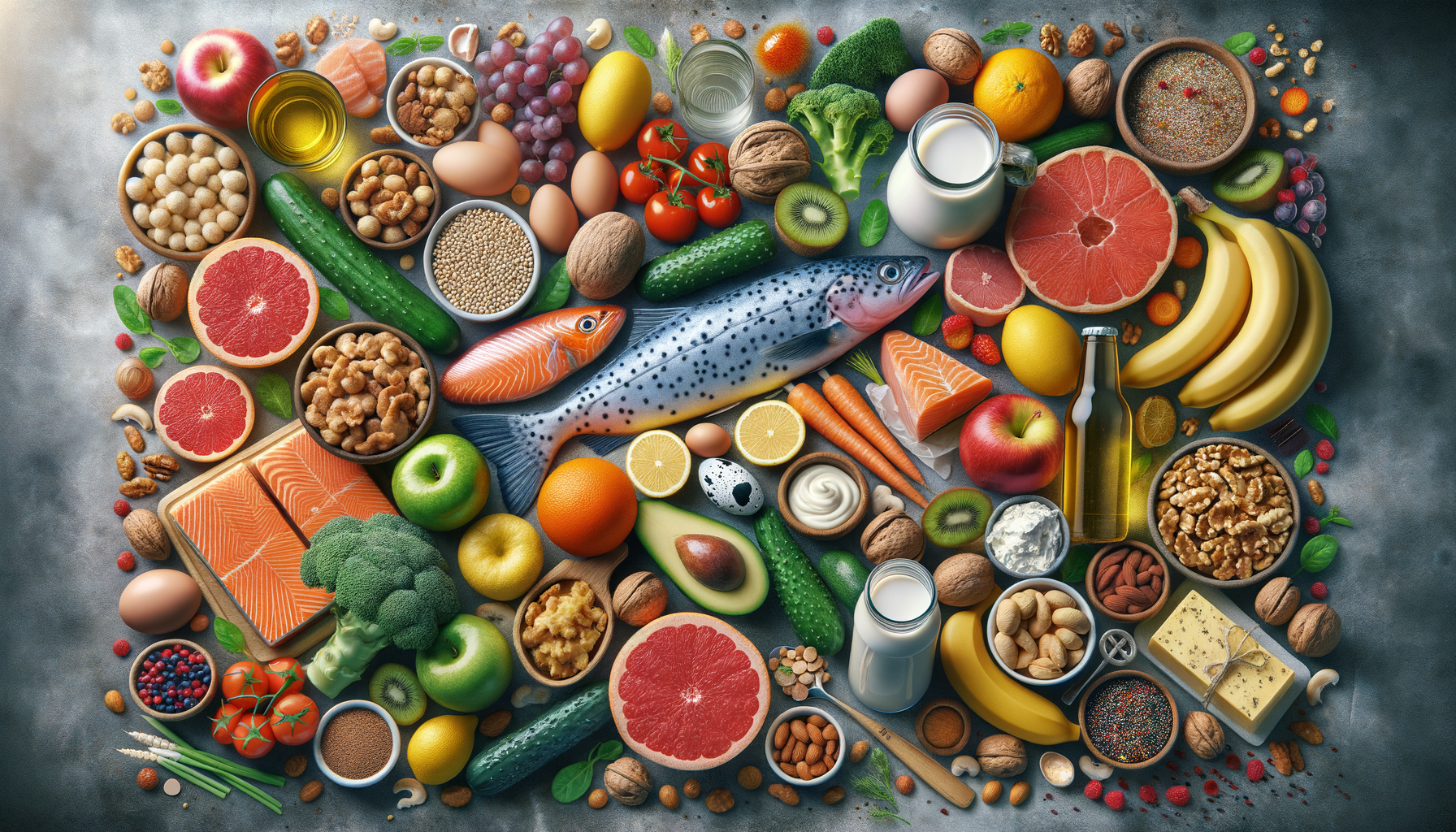
Learn About Foods That Can Help Eczema and What to Avoid
Understanding Eczema: A Brief Overview
Eczema, also known as atopic dermatitis, is a chronic skin condition characterized by inflammation, redness, and itching. It affects millions of people worldwide, impacting their quality of life significantly. The exact cause of eczema is not entirely understood, but it is believed to be linked to a combination of genetic and environmental factors. The skin barrier in individuals with eczema is often compromised, making it more susceptible to irritants and allergens. This can lead to flare-ups that cause discomfort and, in severe cases, can even affect sleep and daily activities.
Understanding the triggers and symptoms of eczema is crucial for effective management. Common triggers include certain fabrics, soaps, and even stress. However, one of the most significant factors that can influence eczema is diet. While food is not a direct cause of eczema, certain dietary choices can exacerbate or alleviate symptoms. This connection between diet and eczema is why many individuals seek to adjust their eating habits as a form of treatment.
The Role of Diet in Managing Eczema
Diet plays a pivotal role in managing eczema, as certain foods can trigger flare-ups while others may help reduce symptoms. Research suggests that an anti-inflammatory diet can be beneficial for those with eczema. This type of diet focuses on foods that reduce inflammation in the body, potentially alleviating the severity of eczema symptoms.
Some foods known for their anti-inflammatory properties include:
- Fatty fish like salmon and mackerel, which are high in omega-3 fatty acids.
- Fruits and vegetables, particularly those rich in antioxidants like berries, leafy greens, and broccoli.
- Nuts and seeds, which provide healthy fats and other nutrients.
- Whole grains, which are less likely to cause inflammation compared to refined grains.
Conversely, certain foods are known to trigger eczema symptoms. These include dairy products, eggs, soy, and gluten, among others. Identifying and avoiding these triggers can be an essential part of managing eczema through diet. It’s important to note that food triggers can vary from person to person, so keeping a food diary can be a helpful tool in identifying specific triggers.
Elimination Diets: A Strategy for Identifying Triggers
An elimination diet can be an effective strategy for identifying food triggers that exacerbate eczema symptoms. This involves removing certain foods from the diet for a period of time and then gradually reintroducing them to observe any reactions. The process requires careful monitoring and patience, but it can provide valuable insights into how specific foods affect eczema.
When embarking on an elimination diet, it is advisable to work with a healthcare professional or a registered dietitian. They can help ensure that the diet remains balanced and that nutritional needs are met. Common foods eliminated during this process include:
- Dairy products
- Eggs
- Gluten-containing grains
- Soy
- Nuts
After a few weeks of elimination, foods are reintroduced one at a time, with careful observation of any changes in eczema symptoms. This methodical approach helps pinpoint specific food sensitivities and allows for a more tailored dietary plan moving forward.
Supplements and Their Impact on Eczema
In addition to dietary modifications, certain supplements may offer benefits for managing eczema. Omega-3 fatty acids, for example, are known for their anti-inflammatory properties and can be found in fish oil supplements. These have been shown to help reduce the severity of eczema symptoms in some individuals.
Probiotics are another supplement that has gained attention for its potential role in eczema management. These beneficial bacteria can help improve gut health, which in turn may influence skin health. While research is ongoing, some studies suggest that probiotics can reduce eczema symptoms, particularly in children.
Vitamin D is also worth considering, as it plays a role in immune function and skin health. Some studies have found that individuals with eczema often have lower levels of vitamin D, and supplementation may help improve symptoms. However, it’s important to consult with a healthcare provider before starting any new supplements to ensure they are appropriate and safe for individual needs.
Practical Tips for Eczema-Friendly Meals
Creating eczema-friendly meals can be both nutritious and enjoyable with a little planning and creativity. Here are some practical tips to help incorporate eczema-friendly foods into daily meals:
- Focus on whole foods: Incorporate a variety of fruits, vegetables, lean proteins, and whole grains into your meals.
- Experiment with herbs and spices: These can add flavor without relying on common allergens like dairy or soy-based sauces.
- Plan balanced meals: Ensure each meal contains a good mix of macronutrients—carbohydrates, proteins, and fats.
- Stay hydrated: Drinking plenty of water can help maintain skin hydration and overall health.
- Try new recipes: Explore recipes that use eczema-friendly ingredients to keep meals interesting and satisfying.
By paying attention to dietary choices and experimenting with different foods, individuals with eczema can find ways to manage their symptoms effectively while still enjoying a diverse and flavorful diet.
Conclusion: Navigating Eczema with Dietary Choices
Managing eczema through diet requires a thoughtful approach, but it can lead to significant improvements in symptoms for many individuals. By understanding the role of diet in eczema, identifying personal food triggers, and incorporating beneficial foods and supplements, those affected by eczema can take proactive steps toward better skin health. While dietary changes may not be a cure-all, they are a valuable component of a comprehensive eczema management plan, offering hope and relief to those seeking to improve their quality of life.